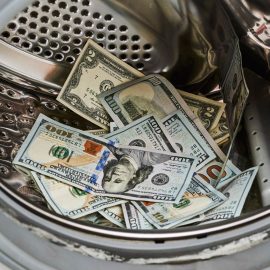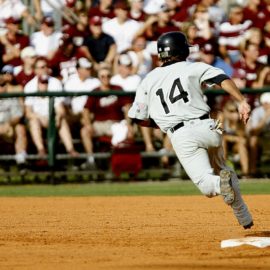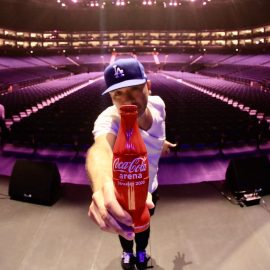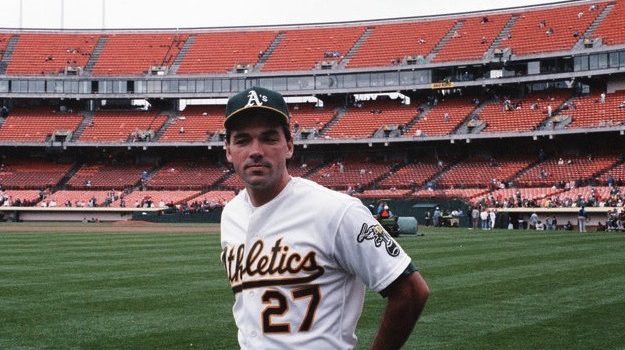
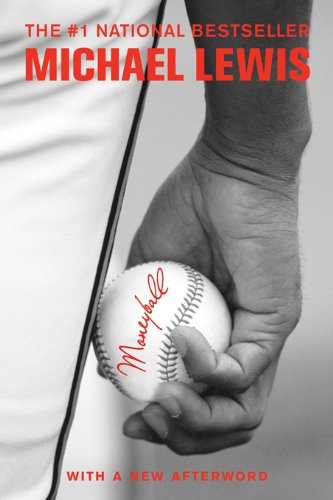
This article is an excerpt from the Shortform summary of "Moneyball" by Michael Lewis. Shortform has the world's best summaries of books you should be reading.
Like this article? Sign up for a free trial here .
What happened during Billy Beane’s baseball career? Was Billy Beane’s playing career as successful as scouts promised.?
Billy Beane’s baseball career lasted only a few years, but it haunted him forever. Billy Beane the baseball player was easily frustrated, and he struggled under the weight of expectations. Billy Beane’s playing career ended with a move to scouting, and he later found success as the Oakland A’s GM.
Billy Beane’s Baseball Career: Bright Beginnings
We start our story in 1980. Billy Beane the baseball player is extraordinarily accomplished in high school. In the late 1970s, he is a star outfielder for his high school team in southern California. Professional scouts travel from all over the country to see him play. To the naked eye, Beane is the living embodiment of everything that ought to predict future success in Major League Baseball.
He is immensely talented, fiercely competitive, and an all-around natural athlete. With his All-American good looks, he is the very model of a major league All-Star. Ahead of the 1980 Major League Baseball Amateur Draft, he is one of the most highly touted (and coveted) young prospects. His rapid ascent to the major seems all but assured.
The only person who is ambiguous about Billy Beane’s baseball career is Billy Beane himself. Although is sure to be drafted in the first round and signed to a major league contract, Billy isn’t sure that he wants to devote his adult life to playing baseball. For the scouts who compete for the opportunity to draft Billy, this should be the first sign that the high school star might not live up to the enormous expectations that have been placed upon him. Billy also has dreams of going to Stanford University (where he has been admitted) and getting a world-class education, dreams that will be closed to him if he decides to go to the majors.
Nevertheless, the lure of playing Major League Baseball proves too strong. In 1980, he is drafted by the New York Mets, using the second of their two first-round picks that year (the team uses their first pick on future Hall of Famer Darryl Strawberry). The team helps Billy briefly overcome his initial ambivalence about playing baseball, flying him out to New York to meet the rest of the organization. Impressed by what he sees and overwhelmed by how his reputation already seems to precede him among the players and coaches he meets, Billy agrees to sign with the club for a $125,000 signing bonus.
This contract puts Billy’s professional future in the hands of the Mets for the next several years. Under league rules, he has no right to play for any other organization: the only way he can play anywhere else is if the Mets trade him or buy out his contract. After signing on to this modern-day form of indentured servitude, Billy is assigned to one of the Mets’ minor league affiliates. Billy Beane’s baseball career has begun.
Billy gives up a great deal to go professional, signing away his rights to offer his baseball services on the open market, for a relatively small sum of money given his draft position. Sadly, his parents are soon swindled out of Billy’s signing bonus when they invest in a dubious real estate scheme. He also sacrifices his dream of going to Stanford, where he initially believes he will be able to attend classes during the off-season. But this is also not to be. When the university finds out that Billy has signed with the Mets and won’t be playing for their baseball program, they promptly rescind his offer of admission.
Billy Beane is now just a regular minor league ballplayer, like any other. His only professional path forward is now in baseball. And it is no longer a path he wishes to walk.
Signs of Trouble
Billy Beane’s baseball career is cursed by his talent and the high expectations heaped upon him. After thoroughly dominating the competition in high school, coaches, agents, and general managers have assured him that he will easily make the leap to become a major league star. But he doesn’t.
Perhaps because of his intensely competitive nature, or the weight of expectations, Billy is emotionally unable to cope with his first brushes with failure on the field as a professional. When he strikes out, he smashes his bat in frustration in the dugout. He becomes known throughout the minor leagues for his wild emotions. Although endowed with natural athletic ability and a keen understanding of baseball, he is unwilling to be patient with the game and is paralyzed by his fear of failure: a failure which he has been told throughout his young career he would never have to experience.
The emotional toll of the lofty expectations placed on Billy shows in his statistical performance. A dominant hitter in high school, he posts a paltry batting average of .210 in his first year in the Mets’ affiliate club in Jackson, Mississippi. The next year, he hits for .220, another mediocre display. Billy is failing, in large part because the Mets have set him up to fail by ignoring his very real ambivalence about becoming a professional player and brushing aside his performance issues with blanket reassurance that he will succeed no matter what.
Billy’s struggles in the minors are compounded by the fact that he is playing alongside Darryl Strawberry and Lenny Dykstra, two players destined for greatness in the majors. These players are, before his eyes, fulfilling the potential that already seems to have been lost in Billy.
Strawberry and Dykstra: Built for Success
Strawberry and Dykstra are Billy’s psychological polar opposites. Both men are relentlessly focused on succeeding at baseball, and little else. They have none of Billy’s ambivalence, and none of his crippling fear of failure. Playing in the Texas League alongside Billy, Strawberry is named the league’s most valuable player. Seeing a player whose overall draft position had been only slightly higher than his own—and who many scouts had thought was actually his inferior—achieve such wild success as a professional is agonizing for Billy.
Lenny Dykstra, meanwhile, is mentally unflappable. Billy later describes Dykstra’s psychological makeup as being ideally suited to play professional baseball. Dykstra refuses to let every failure at bat send him into a Beane-like rage, instead drawing strength from every success. Dykstra understands that baseball is about the long-term, not the short-term.
Any given at-bat is relatively unimportant; if a player falls to pieces after every out, they will not last in the game very long. After all, no one ever hits over .500 over the course of a season—the most likely outcome of any given at bat is an out. The key is to take it in stride and focus on one’s overall game. Dykstra learns this quickly; Billy never does.
Bust
Billy Beane’s baseball career improves when he eventually receives his call-up to the majors. despite his struggles in minor league baseball. But even when he gets his big break, he never lives up to his once-unlimited potential.
Although he has occasional flashes of brilliance, he is still hamstrung by his mental hang-ups, never developing the mental toolkit that players like Strawberry and Dykstra have to overcome the inevitable brushes with failure. Coaches and scouts are puzzled by Billy’s inability to achieve consistent success in the majors.
Throughout a middling MLB career in the 1980s, Billy Beane’s baseball career settles into the role of a journeyman outfielder for the Mets. He is occasionally called up from the minors by the big club and even manages to stay on the roster for long stretches of the season. But it always proves illusory. For a few games, he shows some signs of being the player that everyone once thought he had been, raising false expectations that he has finally hit his stride as a ballplayer. But then he hits one of his characteristic slumps, during which he is seemingly unable to hit anything. This activates all of his psychological triggers about failure, which causes him to fail even more. He is caught in this vicious feedback loop, with no way out.
Nothing helps—praise from coaches when he scores a hit, admonishment when he strikes out, even the intervention of sports psychologists (whose theories and practices Billy later dismisses as quackery) are all to no avail. Inevitably, he is sent back down to the minors.
The cycle repeats several times throughout his tenure with the Mets organization, until he is traded to the Minnesota Twins in 1986. For the remainder of his disappointing career in the majors, he bounces around between MLB teams (he is later traded to the Detroit Tigers) and their minor league affiliates. His last stop in the majors is with the organization where he would truly make his mark on the baseball world, though not as a player—the Oakland A’s.
In the end, Billy realizes that his mental hang-ups stem from his ambivalence. As fiercely competitive as he is, Billy does not want to be a professional baseball player, and probably never did. He and baseball are simply a bad match.
Billy Beane’s playing career ended without the stardom he was promised. Billy Beane the baseball player was easily frustrated and decided he didn’t have the psychological makeup to be a baseball player. However, Billy Beane excelled as a GM. Billy Beane’s baseball career was far from over.

———End of Preview———
Like what you just read? Read the rest of the world's best summary of Michael Lewis's "Moneyball" at Shortform .
Here's what you'll find in our full Moneyball summary :
- How Billy Beane first flamed out as a baseball player before becoming a general manager
- The unconventional methods the Athletics used to recruit undervalued players
- How Sabermetrics influences American baseball today

